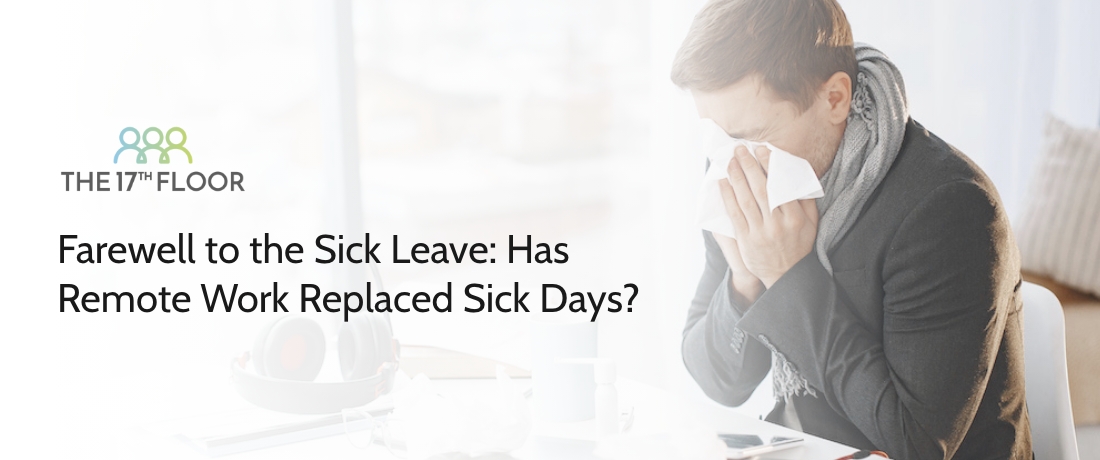Farewell to the Sick Leave: Has Remote Work Replaced Sick Days?

“Employees have juggled their work responsibilities and illness in very different ways during the past 20 months than before the pandemic. For those working from home, the calculus behind taking sick time may have changed a lot,” says Lois M. Collins.
“Some workers might see the evolution of the combined work/sick day as a positive. If you have a mild illness, you can take a little more care of yourself at home while still getting necessary work completed. That means you’re not letting anyone down, and there’s less likely to be an unmanageable mound of work awaiting your return to health,” explains Bryan Lufkin.
Study Finds found that around 70% of remote workers admitted to working from home while feeling ill. It’s easier for them to log in, answer their emails, and pick up some calls instead of feeling they’re letting down your colleagues or clients. “It is not just that technology makes it easier to work from our sick beds, but also that remote and hybrid working could weaken bonds between colleagues,” says Emma Jacobs.
On the one hand, companies are trying to reduce absenteeism because it accounts for 5% of a company’s total payroll, which unfortunately results in a work culture of pressure and guilt. According to Theraflu, 68% of Americans feel obligated to work remotely while ill due to the current post-pandemic work expectations.
On the other hand, remote work is, in fact, putting a strain on the relationships between employees. Some people might feel sick colleagues can take advantage of remote work to help the company’s workflow and deadlines, while others may disagree. The element of trust will play a significant role within each company.
“Much depends on the culture of the workplace: the examples set by senior executives, the jibes made about slacking off or binging on streaming services. Ultimately it comes down to trusting employees to take time off when they need it and not abuse the flexibility,” explains Emma Jacobs.
“While there’s increasing pressure for employees to work while sick in the age of remote work, there are still valid reasons for employees to take a sick day if they’re so ill they physically need the rest or are simply unable to perform their jobs. Therefore, this necessity will likely help the sick day survive even in the post-COVID “new normal,” concludes Lin Grensing-Pophal.
Have you taken sick days since the pandemic started? Let us know in the comments how sick days have changed for you since the pandemic.
Absenteeism, Human Resources, Remote Work, Sick Leave, Work-Life Balance

Trina Anderson, PCP
The company I work for does not have sick days for their employees, therefore they come to work ill (wasn’t a great situation during Covid) or they were forced to take unpaid time off or vacation days. Employees were not happy about that.
Caitlin Henderson, PCP
That is so difficult. I believe this is why the federal government has now mandated 5 sick days per year. Still not super helpful when we needed to isolate for two weeks, but it does help.
Caitlin Henderson, PCP
Since working from home I have taken significantly less sick days. When I am not feeling well I will often still work and just take a few hours here and there. I like that when I am just a little under the weather I can still work and not be concerned about getting anyone else in the office sick.
Donna Parker
I can say during Covid and working from home, I worked while sick never taking a day off.
Denise Burnett
I do find that since I have the capacity to work from home, I have taken fewer sick days because I am working through more than I would if I was going into the office. On one hand it’s great because sometimes I’m feeling well enough to work but not well enough to be around others (i.e. infection control) so it allows me to continue to work and not have to take a day off or use an entitlement. Other times it is not so great, as I am working when I probably should be resting and recovering. There is a sense of obligation to do something when my office is in my home. My employer has not changed their expectations, so honestly it is an expectation I have put on myself. I need to set clear boundaries for those situations.
Stacey Wood PCP
Typically, if I’m taking a sick day/using my sick leave, I disconnect from work–if I’m sick, I need to rest & focus on healing. Conversely, if I’m working (or expected to be working), I don’t draw from my sick leave accrual.